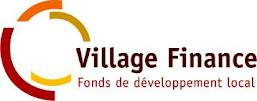What is a social enterprise?
Social entrepreneurship seeks to reconcile economic and social profit. In other words, social entrepreneurs try to meet a collective need or address a social issue through a sustainable economic activity.
A link can therefore be established between the United Nations Sustainable Development Goals and social entrepreneurship.
Three pillars make up social entrepreneurship according to the European Emergence of Social Enterprises (EMES) network:
- the purpose of a project is social and/or environmental.
- the project is economically viable.
- its governance is democratic (limited redistribution of profits, limited wage pressure, democratic decision-making processes).
Social entrepreneurship is part of the social economy, which brings together :
- the commercial sector - social enterprises including the Integration Enterprises (IE) (cooperatives, SRL, SA, etc.) and
- the non-profit sector including the Local Employment Development Initiatives (LEDI) (non-profit organisations, foundations and mutual societies)
In Brussels, social entrepreneurship is one of the pillars of the Shifting Economy, an undeniable driver of social transformation that is necessary to meet the social and environmental challenges facing the Region.
What does the sector represent in Brussels?
In Brussels, the Belgian Observatory of the Social Economy lists nearly 5,000 associations, companies and cooperatives with a social purpose, foundations and mutual companies, which produce goods and services in all areas of activity, including personal services, culture, sustainable food, construction, housing, education etc.
In total, in 2018 the social economy accounted for 12% of employment in the Brussels-Capital Region and over 20% of net job creation in Belgium.
Some useful links
Apart from the actors who can help you with your social project, the accreditation of your enterprise or finance your project (above), here are some other useful sources:
- Social economy: the project of a mutualised site of the social economy associates four major actors of the Belgian social economy: ConcertES, SaW-B, Centre d'économie sociale, Step Entreprendre.
- Ashoka Belgium: Ashoka is the largest international network of social entrepreneurs providing systemic solutions to society's most pressing problems. Ashoka envisions a world in which everyone is a change-maker.
- Emes: a research network for social enterprises
- BISIB (Bruxelles Innovation Sociale-Sociale innovatie Brussel) : is an ecosystem of actors working on social innovation in Brussels
- L'Observatoire de l'économie sociale: offers key figures, statistical data, but also analyses and qualitative studies on themes specific to the social economy
- VUB Chair Social Entrepreneurship: the main areas of interest of the VUB research team are business models, ecosystems and technology transfer.
Who can help me ?





